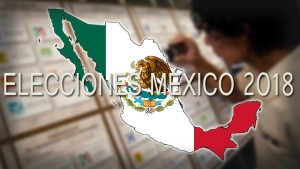According to Bloomberg, Mexico’s elections have often had a dark side. Candidates have been killed, illicit cash has flowed, and vote counts have been mysteriously interrupted. So when analysts say next year’s presidential race could be one of the dirtiest ever, it’s worth paying attention. The bar is high.
The official campaign hasn’t even begun yet, but Mexico’s ruling PRI has already been slammed by election watchdogs. The party has Mexico’s best-oiled political machine, and it’s also deeply unpopular — a dangerous combination. A recent survey showed the PRI candidate, former Finance Minister Jose Antonio Meade, in third place with just 16 percent support.
Then there’s the early frontrunner, Andres Manuel Lopez Obrador. A fiery leftist, he’s been openly campaigning for years, in apparent defiance of laws that stipulate a strict electoral timetable. He’s run twice before, and has a reputation for not losing quietly.
Meanwhile, the country is suffering the worst wave of violence this century. That could transform the clashes that are a feature of campaigns into something more dangerous — especially if the vote is close and contentious, as it’s widely expected to be.
‘Bigger Than Ever’
“This could be the worst election since democratic races were born,” said Jesus Cantu, a political scientist at the Tecnologico de Monterrey. “If we look at what the federal government and political parties have already done, as well as some electoral authorities, we have no reason to be optimistic.”
The task of ensuring a smooth vote falls to regulators who are underfunded. And in October, President Enrique Pena Nieto fired the top electoral prosecutor after he spoke to the media about an ongoing bribery investigation — which concerned the previous presidential vote.
The position was just filled by Hector Marcos Diaz. But the previous prosecutor’s firing just as he was investigating Pena Nieto’s previous election campaign weakens the watchdog’s ability to crack down on vote-buying, according to Kenneth Greene, who researches Mexican elections at the University of Texas at Austin.
Click here for full article on Bloomberg
Source: Bloomberg


